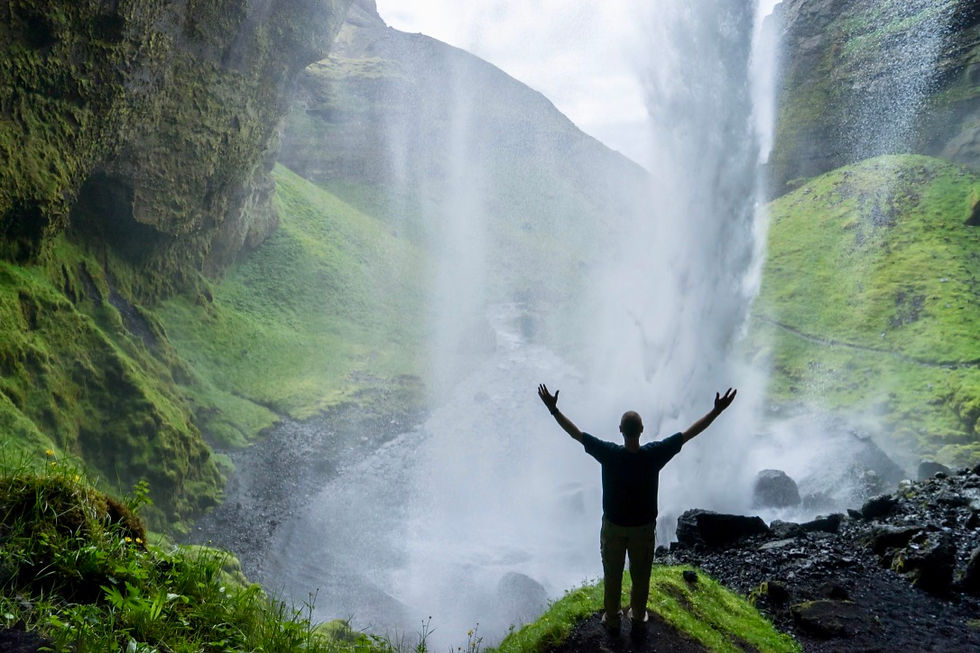Searching for the Middle
- D. Wayenberg

- Nov 29, 2020
- 3 min read
Somewhere there is a middle ground of peace between hostilities. There is a place of faith where respecting different opinions and beliefs can exist without compromising convictions. Somewhere there is a space where we can live, without anxiety, in the tension between the present reality and our future hope. Somewhere there is a way of living “in the world, but not of the world,” of living “thy kingdom come, thy will be done,” without abandoning the world for the hope of heaven and without prematurely condemning the world to hell. There is a place somewhere between the labels of “left” and “right,” between “liberal” and “conservative,” between “us” and “them,” between “I am right” and “you are wrong,” where the mosaic of doctrinal persuasions is beautifully arranged in a way that nullifies labels. Somewhere is a place shaped by faith and grace rather than right belief, while the struggle of what we believe is embraced. Somewhere there is a dynamic, fluid space, that audaciously says that it’s okay to admit that I might be wrong, and others could be right, that what I believe today may not be the same as what I believe tomorrow, not because I lack conviction, but because my desire to be transformed by the love of Christ runs deeper than my desire to defend the entrenched position of my group.

Never have I wanted to find and be in that middle ground more than I do right now. But the middle ground can be a lonely place because it invites us to leave the safety of what we have known and into the unfamiliar place of what could be. The risk of a middle space is that pursuing it means leaving the comfort of huddling in our ideologies. Too often we would rather defend our “rightness” at all costs to preserve our identity and conformity with a group than risk the alienation that comes from asking difficult questions. Searching for a middle place means asking questions that ideological groups do not want to ask and entertaining answers that they do not want to hear. The reality is that the “middle ground” is not in the middle of anything, but instead it is in the middle of everything.
The struggle of a middle space is that it is defined by its diversity, not its conformity. It embraces change at the risk of uncertainty and belonging. The middle space calls us to love our brothers because of our differences, not in spite of them. It finds beauty in the vast array of expressions of Christian faith and is able to call others of different traditions, part of our family, without a qualification. The middle ground is able to celebrate with the person who meets God in the Rosary just as well as the person who meets God when speaking in tongues. The middle ground clings to the essentials of Christian faith and holds loosely to secondary doctrines that cause division. It is able to extend extra measures of grace and mercy, understanding that is only because of enormous measures of grace and mercy that we are able to meet God in the first place.
I am on a never-ending journey to find that space, to join others in that middle ground and to make the place a more tangible reality. As distant as it often seems, I feel closer now to finding that space while at the same time knowing that I will never fully realize it. I also know that this is not so much a struggle of finding that middle space as it is being the middle space, regardless of the risk and regardless of the feeling of isolation that it can sometimes bring. But I think it is a worthwhile search and I am certain that there are others looking for that place as well.



Yes! I agree with all of this. The middle is a lonely place, and I also believe this is the right place to be. Some things GOD calls us to stand firm to and we should. However many of us stand firm on things that are like dust, clinging to the latest trend, or jumping on the bandwagon of a new ideal. I think more of us need to share GOD’s love from the middle.